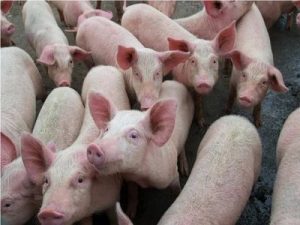
The African swine fever outbreak has killed nearly 15,000 pigs in Assam and is spreading in new areas despite preventive measures taken by the state government. The BJP-led government is preparing for mass culling, a top official said.
The state government has issued a high alert in ten affected districts. It has asked the centre to provide one-time financial package of Rs 144 crore for the farmers who rear pigs.
“We are deeply concerned due to this growing crisis in Assam. The deaths are increasing every day. Now, 10 districts have been affected already. 14,919 pigs have died already and the number is on the rise. We have alerted the Government of India as well,” Assam Animal Husbandry Minister Atul Bora told NDTV.
“Initially, six districts were affected but now it has spread to 10 districts out of 33, despite the fact that we took all possible steps (for prevention), but it is spreading to new areas. Thus, we are thinking about other options, we are discussing it,” he added.
African swine fever or ASF is fatal for domestic pigs, with almost 100 per cent mortality rate. It has also spread in Arunachal Pradesh. The disease spreads from animal to animal. There has not been an instance of humans contracting the disease.
This is the first time the disease has spread in India. Assam claims the disease had come from China, where almost 60 per cent of pigs have died between 2018-20.
“We have demanded Rs 144 crore from the Government of India for compensating the pig farmers. We had taken biosecurity measures to make sure it doesn’t spread further. We have declared that area under one-kilometre radius (of affected areas) as containment zone, and 10-kilometre radius as surveillance zone,” the minister added.
The Assam government has alerted all wildlife reserves in the state regarding the disease.
“There are around 15,000 wild boars alone in Kaziranga National Park, and we have discussed with the state forest department to take preventive measures. Assam Chief Minister Sarbananda Sonowal has also directed the forest department to take all preventive measures,” Mr Bora said.
Leave a Reply